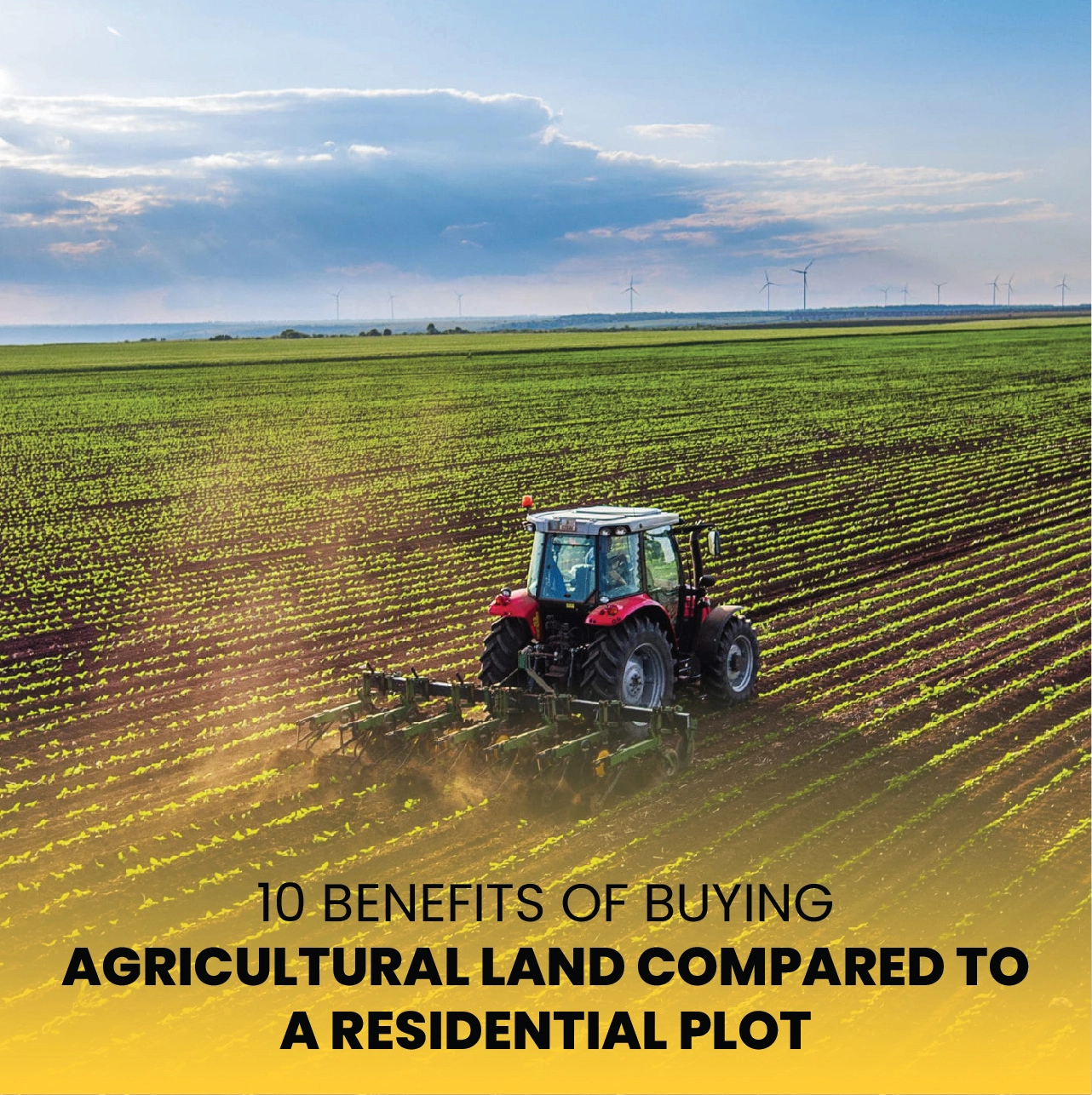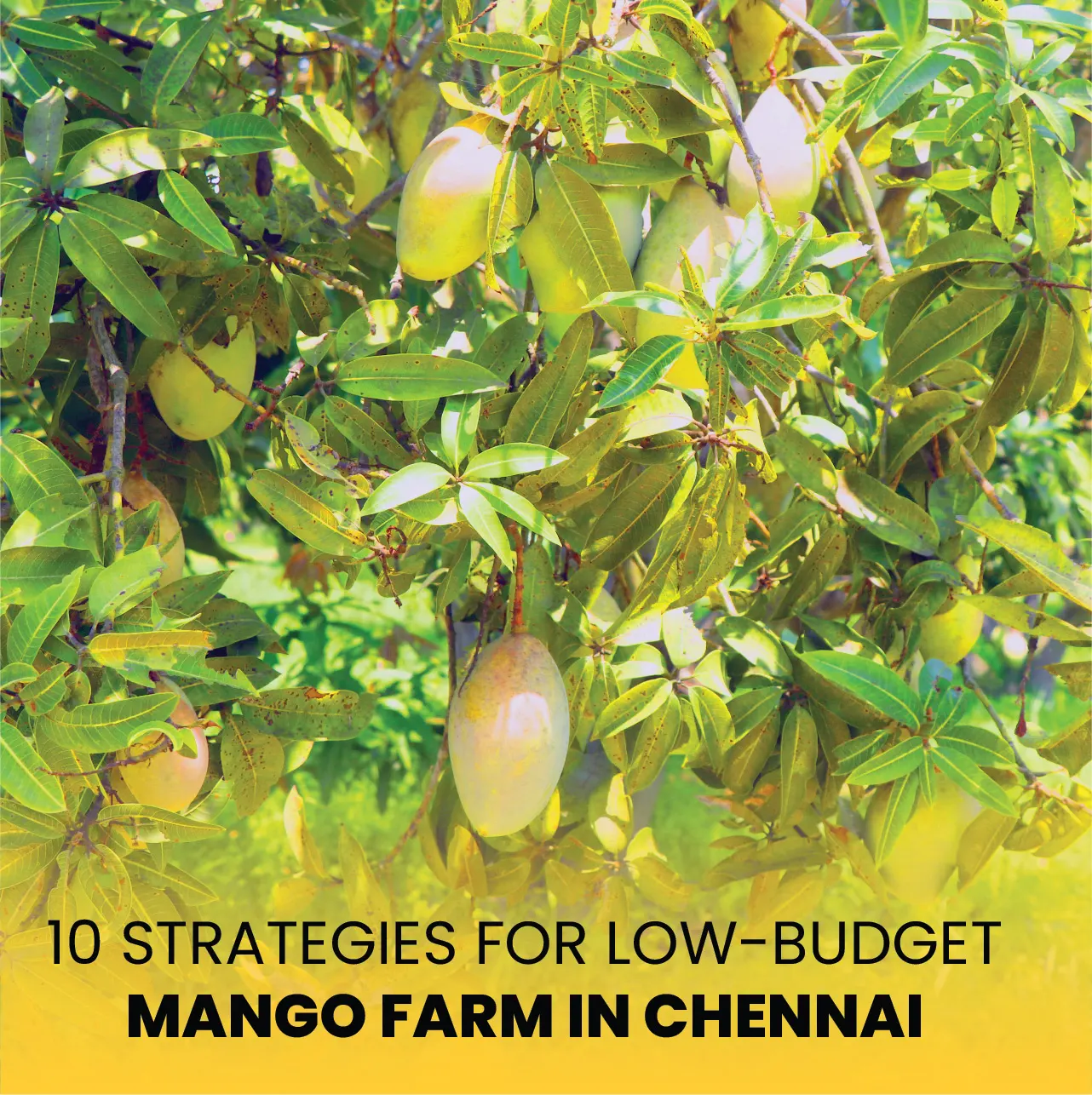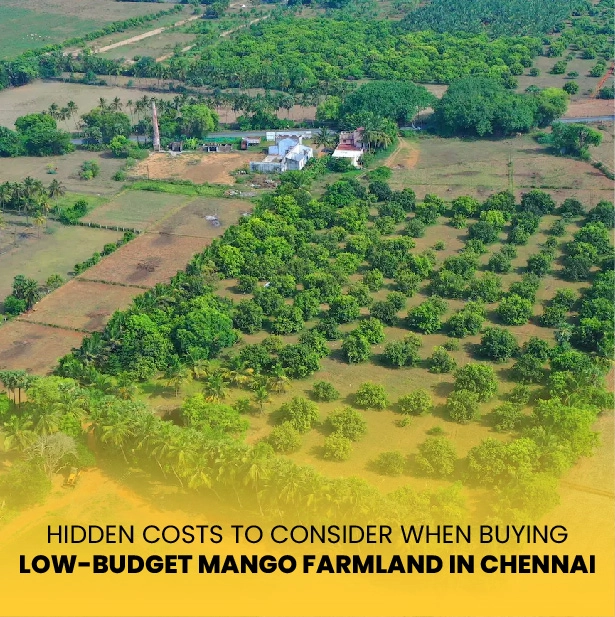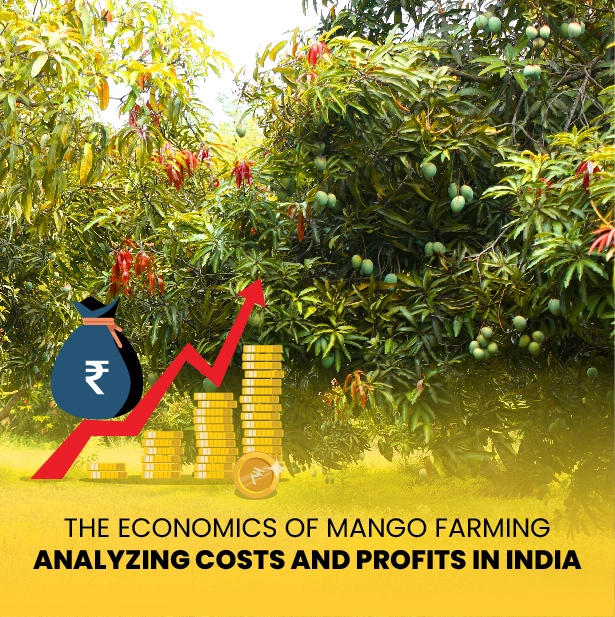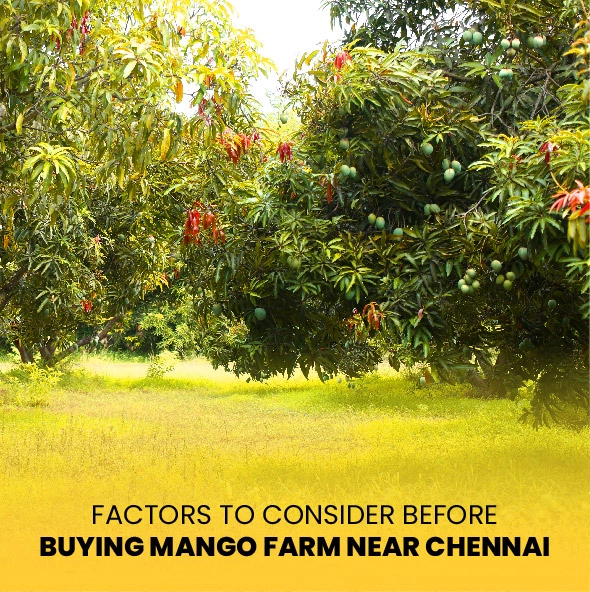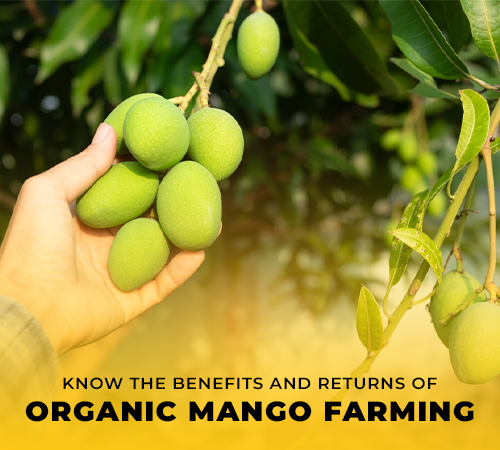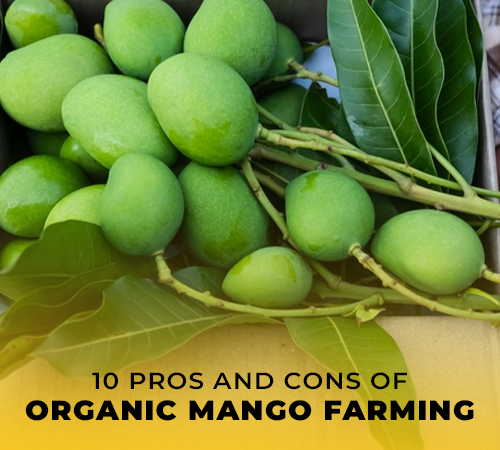Growing delicious mangoes requires a delicate dance with water. These majestic trees crave hydration for optimal fruit production, but overwatering can lead to wasted resources, disease problems, and even harm the environment. Striking the perfect balance is key to sustainable success on your Mango Farm Land.
Finding Mango Farm Land for sale is an exciting prospect, but remember, water management is a crucial factor for long-term profitability. This blog dives into water conservation techniques to help you navigate this balancing act and ensure your mango trees thrive.
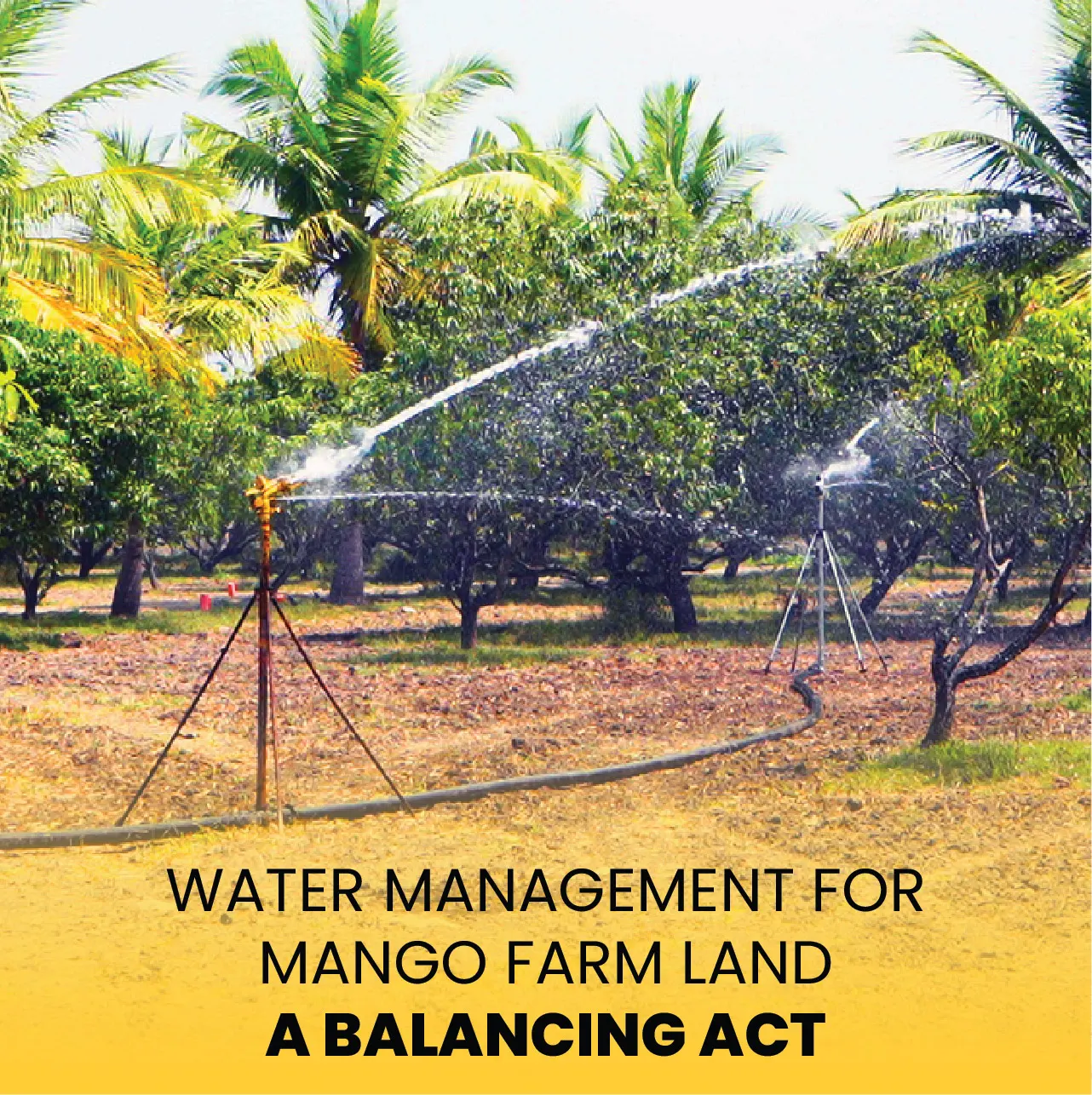
Mango trees are thirsty, especially during critical growth stages like flowering and fruit development. However, excessive water can lead to root rot, fungal diseases, and hinder nutrient uptake. This creates a dilemma for farmers – providing enough water for healthy growth while minimizing waste.
Fortunately, several techniques can help you optimize water use on your Mango Farm Land. Let's explore some key strategies:
Embrace Drip Irrigation: This highly efficient system delivers water directly to the root zone of each tree through a network of emitters. This minimizes evaporation and ensures water reaches the parts of the plant that need it most. Compared to traditional flood irrigation, drip irrigation can save up to 50% of water!
Rainwater Harvesting: Capture the bounty of the skies! Install a rainwater harvesting system on your Mango Farm Land. This could involve collecting rainwater from rooftops or constructing ponds to store runoff during the rainy season. This precious resource can then be used for irrigation during dry periods, reducing dependence on groundwater.
Become a Soil Moisture Master: Understanding your soil's moisture content is vital. Invest in soil moisture sensors or learn to read the signs – wilting leaves are a late indicator of drought stress! By monitoring soil moisture, you can irrigate only when necessary, preventing overwatering.
Weather Wisdom: Don't fight Mother Nature! Keep an eye on weather forecasts and adjust your irrigation schedule accordingly. Reduce irrigation during periods of high humidity or rainfall and increase it during hot, dry spells.
Embrace Mulching: A layer of organic mulch around the base of your mango trees works wonders. It helps suppress weeds that compete for water, reduces soil evaporation, and retains moisture in the root zone, leading to less frequent irrigation.
Choose Drought-Tolerant Varieties: Consider planting mango varieties known for their resilience to drier conditions. While all mangoes crave some water, specific varieties may require less frequent irrigation, making life easier on your water resources.
Developing a personalized irrigation schedule is crucial for water conservation. Factors to consider include:
Growth Stage: Mango trees require more water during flowering and fruit development compared to their dormant periods.
Soil Type: Sandy soils drain faster than clay soils, requiring more frequent irrigation.
Climate: Hot and dry climates necessitate more frequent irrigation than cooler or more humid regions.
Rainfall: Factor in expected rainfall when scheduling irrigation to avoid overwatering after a downpour.
For the tech-savvy farmer, advanced irrigation systems can be a game-changer. These systems use sensors to monitor soil moisture, weather data, and even plant transpiration (the loss of water vapor through leaves). Based on this real-time data, they automatically adjust irrigation schedules, ensuring optimal water delivery and minimizing waste.
By implementing these water-saving techniques, you can significantly reduce water consumption on your Mango Farm Land for sale and contribute to a more sustainable future. Remember, responsible water management is not just about saving money on your water bill; it's about protecting precious water resources for future generations.
Water management and land management are intricately connected. Practices like creating windbreaks around your mango orchard can help reduce wind erosion and maintain soil moisture. Additionally, planting cover crops between mango trees can suppress weeds that compete for water and nutrients. By taking a holistic approach to land management, you optimize water use and create a healthier ecosystem for your mango trees. Here are some additional considerations:
Improving Soil Health: Healthy soil retains moisture more effectively. Consider practices like compost application and cover cropping to improve soil organic matter content, leading to less frequent irrigation needs.
Optimizing Drainage: While mango trees need water, they don't appreciate waterlogged conditions. Ensure proper drainage on your Mango Farm Land to prevent root rot and promote healthy growth. Techniques like raised beds or installing drainage tiles can be helpful in areas with poor drainage.
Promoting Biodiversity: A diverse ecosystem on your mango farm land can be beneficial for water management. Beneficial insects like ladybugs can control harmful pests, reducing the need for water-intensive pesticide applications. Additionally, attracting pollinators like bees and butterflies can improve fruit sets and overall yield, leading to more efficient use of irrigation water.
Managing water effectively on your Mango Farm Land for sale is an ongoing process. By implementing the techniques discussed in this blog, you can strike the perfect balance between meeting the water needs of your mango trees and minimizing water waste. Remember, water conservation is not just about saving money, it's about environmental responsibility and ensuring the long-term sustainability of your mango farm. With a commitment to water-wise practices, you can cultivate delicious mangoes while leaving a positive footprint on the land.
Perhaps you're considering purchasing agriculture land for sale to expand your mango farming operation. Remember, water availability and quality are crucial factors to consider when selecting new land. Research local water resources, and prioritize land with good drainage and access to sustainable water sources. By implementing these water-saving strategies and carefully planning your mango farm expansion, you can ensure a bright and sustainable future for your mango farming business. So, get out there, embrace water conservation techniques, and watch your mango trees flourish!




